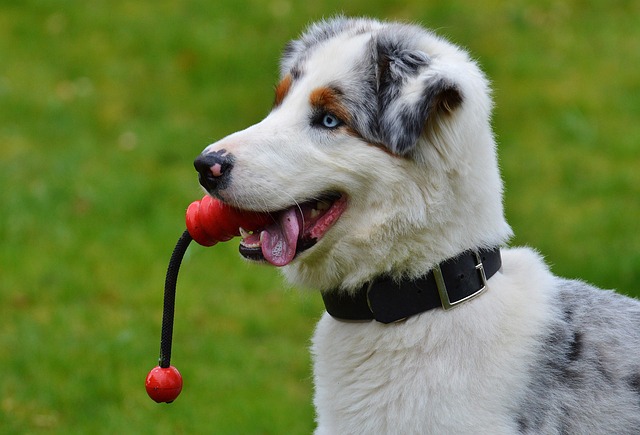
How to get dead flaky skin off a dog
How to get dead flaky skin off a dog? If you’ve ever buried your face in your golden retriever “Max’s” fur for a cuddle, only to pull back with tiny white flakes clinging to your sweater
When we watch a Golden Retriever running towards us with a cheerful pace, its fluffy fur shining in the sun, and its bright smile seemingly able to dispel all the darkness, our hearts are filled with warmth and joy. As owners, we always want to give it the best and hope that it can grow up healthily and happily. Diet is the key to ensuring the health of Golden Retrievers, and fruits, as nutritious foods, can also play an important role in the diet of Golden Retrievers. Every time we select fruits for it, it is full of our deep love for it. We hope that these delicious and nutritious fruits can add more vitality to its life.
From the perspective of professional pet nutrition, as a medium to large dog breed, Golden Retrievers have a large amount of daily activity and have relatively comprehensive nutritional needs. Fruits are rich in various nutrients such as vitamins, minerals, and dietary fiber, which can supplement the nutrients that may be lacking in the daily diet of Golden Retrievers and maintain the normal metabolism and health of their bodies. However, not all fruits are suitable for Golden Retrievers to eat. We need to make scientific and reasonable choices according to the physical characteristics and nutritional needs of Golden Retrievers.
Apples are a kind of fruit that is very suitable for Golden Retrievers to eat. They are rich in a variety of vitamins, such as vitamin A, vitamin C, etc. Vitamin A plays an important role in the development and maintenance of the vision of Golden Retrievers. It can help Golden Retrievers maintain good visual function, allowing them to better observe the surrounding environment when running and playing. Vitamin C is a powerful antioxidant that helps enhance the immunity of Golden Retrievers, reduces the damage of free radicals to body cells, and makes Golden Retrievers more resistant to external pathogens. In addition, apples are also rich in pectin, which is a water-soluble dietary fiber that can promote the intestinal peristalsis of Golden Retrievers, aid digestion, and prevent constipation. When feeding apples to Golden Retrievers, be sure to remove the cores and cut the apples into small pieces to prevent Golden Retrievers from swallowing the cores, because apple cores contain cyanide, which is toxic to dogs. Generally speaking, a small Golden Retriever can be fed a quarter of an apple per day, and a medium or large Golden Retriever can be fed half to one apple per day. Watching the Golden Retriever munching on the apple pieces with relish, enjoying the delicious taste while also gaining health, the owner's heart is also filled with gratification.

Bananas are also one of the fruits that Golden Retrievers like and are rich in nutrients. Bananas are rich in potassium. Potassium plays an important role in maintaining the heart function, normal muscle contraction, and the stability of the nervous system of Golden Retrievers. For Golden Retrievers that exercise regularly, appropriately supplementing potassium can prevent muscle cramps and make them more relaxed and free when running and jumping. In addition, bananas have a soft texture and are easy to digest. For Golden Retrievers with weak gastrointestinal functions or those in the recovery period from illness, bananas are a very good food choice. Moreover, bananas have a rich sweet taste, and many Golden Retrievers like to eat them very much. However, bananas have a relatively high sugar content and should not be fed in excess, so as not to cause obesity in Golden Retrievers. Generally, feed 2 - 3 times a week, half to one banana each time. When seeing the Golden Retriever happily eating a banana, its contented appearance makes people can't help but want to give it more love.
Blueberries are known as the "queen of fruits" and are also of great benefit to the health of Golden Retrievers. Blueberries are rich in antioxidants, such as vitamin C, vitamin E, flavonoids, etc. These antioxidant substances can effectively eliminate free radicals in the body of Golden Retrievers, delay cell aging, and reduce the risk of suffering from a variety of diseases. At the same time, the anthocyanins in blueberries are particularly beneficial to the eye health of Golden Retrievers. They can protect the retina, improve eyesight, and prevent eye diseases. For senior Golden Retrievers, eating an appropriate amount of blueberries can help relieve the aging problems of their eyes. Although blueberries are rich in nutrients, their price is relatively high, and the amount fed at one time does not need to be too much. Feed 10 - 15 blueberries each time for a small Golden Retriever, and 20 - 30 blueberries each time for a medium or large Golden Retriever. Watching the Golden Retriever carefully licking the blueberries as if savoring a precious delicacy, we are also happy that it can enjoy such a nutritious and delicious food.
In addition to the above fruits, watermelons are also a good choice for Golden Retrievers in the hot summer. Watermelons have a high water content, which can help Golden Retrievers replenish the water lost due to sweating and play a role in clearing heat and relieving summer heat. At the same time, watermelons also contain certain vitamins and minerals. However, it should be noted that watermelons have a high sugar content and should not be fed in excess. Also, remove all the watermelon seeds, because watermelon seeds are not easy to digest, and swallowing a large number of them may cause gastrointestinal discomfort in Golden Retrievers, or even block the intestines. Generally, feed a small piece of watermelon to the Golden Retriever each time, just to let it have a taste and quench its thirst. On a hot afternoon, watching the Golden Retriever happily eating watermelon and enjoying the coolness of summer, that sense of comfort also infects us.
When feeding fruits to Golden Retrievers, there are also some precautions that need to be kept in mind. Firstly, ensure the freshness and cleanliness of the fruits, and avoid feeding spoiled or rotten fruits to prevent food poisoning in Golden Retrievers. Secondly, do not feed fruits that are toxic to dogs, such as grapes, raisins, and avocados, to Golden Retrievers. Even a small amount of these fruits may cause serious damage to the kidneys of Golden Retrievers and endanger their lives. In addition, although fruits are rich in nutrients, they cannot replace the staple food of Golden Retrievers and can only be added to their diet as supplementary food in an appropriate amount. Moreover, the gastrointestinal adaptability of each Golden Retriever is different. When trying a new fruit for a Golden Retriever, feed a small amount first and observe for 1 - 2 days to see if the Golden Retriever has any uncomfortable reactions such as vomiting or diarrhea. If not, gradually increase the feeding amount.
Golden Retrievers are the warmest companions in our lives. They fill our lives with unconditional love. Selecting nutritious fruits for them is one of the ways we express our love. We hope that every Golden Retriever can gain health and happiness from the delicious food carefully prepared by the owner, and continue to accompany us through every wonderful day with a bright smile and a vigorous posture.

How to get dead flaky skin off a dog? If you’ve ever buried your face in your golden retriever “Max’s” fur for a cuddle, only to pull back with tiny white flakes clinging to your sweater

Will my dog’s paw pad heal on its own? If you’ve ever ended a walk with your Australian shepherd “Milo” to find tiny spots of blood on the sidewalk, then noticed a ragged scratch on his paw pad

You’re out in the yard, watching your dog chase a ball, when you notice they’re moving a little stiffly—maybe hesitating before jumping up on the porch, or limping slightly after a quick run.

How do I toughen up my dog’s paw pads? If you’ve ever watched your 3-month-old golden retriever puppy “Buddy” pause at the edge of the sidewalk

It’s a scenario many new dog owners know too well: you wake up to find your pup’s bed dotted with small puddles of diarrhea, or they turn up their nose at breakfast and let out a low, unhappy whine.

That unmistakable fishy odor suddenly filling your studio apartment, or your pup doing an urgent "scoot" across your favorite rug – it’s frustrating and concerning.